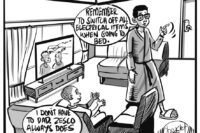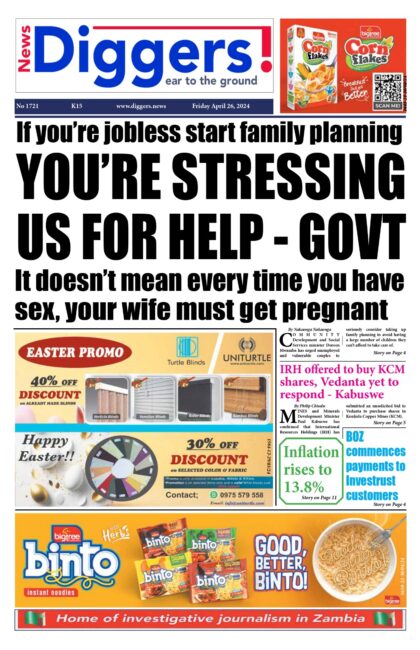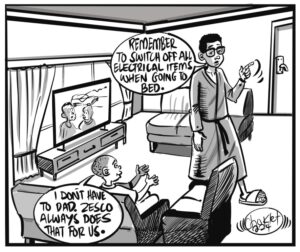A Consortium of Civil Society Organisations have joined LAZ president Eddie Mwitwa in condemning the proposed amendments to the Constitution saying they indicate that the country might be descending into anarchy.
And the CSOs say introducing a coalition government could mean that the power of the people of Zambia to elect a government of their choice will be undermined.
In a a joint statement signed by Chapter One Foundation executive director Linda Kasonde, ActionAid Zambia, Alliance for Community Action (ACA), Caritas Zambia, Centre for Trade Policy and Development (CTPD) , Civil Society Constitution Agenda (CISCA), Engwase Mwale and Lewis Mwape, the CSOs said the proposed amendments to the Constitution would have a number of negative effects on governance and Zambia’s political system.
The CSOs said it is surprising that the Constitution Amendment Bill consisted of clauses like the reintroduction of deputy ministers when the country should be taking austerity measures given the high levels of debt in the country.
“The undersigned civil society organisations join the President of the Law Association of Zambia, Mr. Eddie Mwitwa, in condemning the proposed amendments to the Constitution as contained in the Constitution of Zambia (Amendment) Bill 2019 which is currently before Parliament. As stated by Mr. Mwitwa, the proposed amendments to the Constitution will have the following effect: 1. Reintroducing Deputy Ministers: This is a proposal that the people of Zambia rejected in the last constitutional review process. This amendment would be costly to the Zambian people at a time when the country should be taking austerity measures given the high levels of debt in the country. It comes at a time when many Zambians are struggling to make ends meet due to the high cost of living. These resources could be better used to meet basic services such as health, education, water and sanitation. We are aware that schools have not been receiving their funds and that funding to the health sector is equally erratic. And even if there were no cost attached to it, having a bloated Cabinet would mean that things would run less efficiently,” read the statement.
“2. Removing the constitutional limit on the number of constituencies and therefore the number of members of parliament: This will have three effects. Firstly, the party in power, which normally has a majority in parliament, will be able to increase the number of members of parliament and constituencies at will meaning that they can ensure that they always have a majority in parliament and therefore make it
easier for them to pass any Act of Parliament and even to reach the two thirds threshold to change any provision of the Constitution outside of the Bill of Rights. A ruling party with that much power is essentially tantamount to a one-party dictatorship. Secondly, the ability to increase the number of members of parliament will come at a cost to the Zambian people who have to pay the salaries of these MPs
at a time when money is hard to come by. Thirdly, it will increase the likelihood of the party in power remaining in power indefinitely.”
And the CSOs opposed the proposal to introduce a coalition government.
“3. Coalition Governments: The proposed introduction of coalition governments in the event that the party leading in a general election fails to meet the current 50% threshold to form government undermines the will of the people as stated in the final draft constitution drafted by the Technical Committee, to have a government elected by the majority of the people in Zambia (over 50% of the electorate). It also
means that a political party can form government by partnering with another political party that was largely rejected by the electorate. This means that the power of the people of Zambia to elect a government of their choice will be undermined. Additionally, as stated by Mr. Mwitwa, coalition governments are only suited to a parliamentary system of government. Zambia currently operates under a
presidential system of government where the electorate votes for the President directly unlike in a parliamentary system where the ruling party selects who the head of state will be. This is problematic not only because the people of Zambia have consistently opted for a presidential system of government but also because the framework of the Constitution, even with the proposed amendments, does not support a coalition system of government,” read the statement.
“4. Compromising the Superior Courts of Zambia: Mr. Mwitwa is also correct in saying that the fact that the government is proposing an unlimited number of judges that make up our High Court, Court of Appeal and Constitutional Courts means that the party in power can pack the courts with judges that are sympathetic towards them subsequently interfering and undermining the independence of the judiciary.”
The CSOs stated that the fact that the powers in the Constitution were being wrestled out of the hands of the people of Zambia, it showed that the country was descending into anarchy
“In summary, the fact that the powers in the Constitution are being wrestled out of the hands of the people of Zambia, who are the true owners of the country and its Constitution, shows that we are descending into anarchy. We support the LAZ President’s statement as it is the correct position at law. His statement puts the national interest above self-interest and we are confident that the LAZ Council will support that view. The alternative is to be unpatriotic and to be on the wrong side of history,” read the statement.












